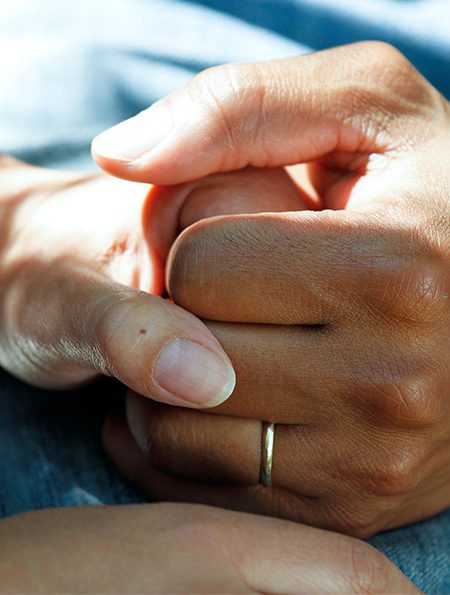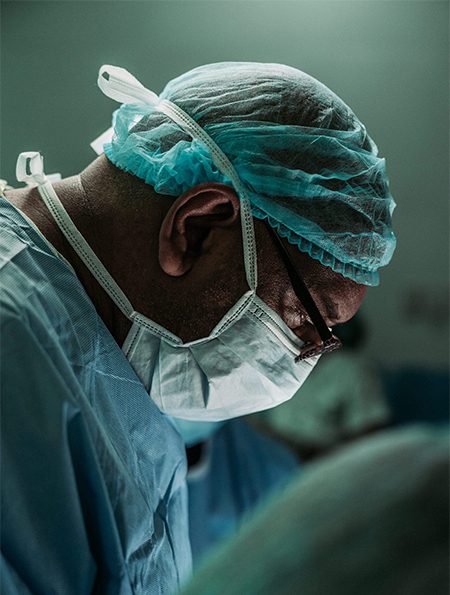Research
Surrey Research Centre – As the busiest COVID-19 hospital in BC, SMH was particularly challenged. But SMH’s medical teams were very successful and had among the best COVID-19 survival outcomes in the world. With this success, we realized that we had a critical role and responsibility to conduct research. Surrey Hospitals Foundation rallied together donors and the Michael Smith Health Research BC to create Fraser Health’s very first clinical research unit, whose home would be at Surrey Memorial Hospital. The unit consists of 17 researchers, including student research assistants and coordinators. In the unit’s first six months of operation, 69 studies were approved or underway, and its researchers were authors or co-authors on 39 studies.
Free Flap Monitoring Study – Free flap surgery is a procedure that replaces body tissues that had to be removed in patients due to cancerous tumors. There are approximately 2,300 such surgeries in Canada each year, about 100 of which take place at Surrey Memorial Hospital. However, these surgeries have about a 5% failure rate, subjecting patients to further surgery, increased hospital stay, and decreased quality of life. For the health care system, free flap failure can increase surgical and post-operative costs by almost another six-figures. One potential solution is to implement free flap monitoring that can provide early detection of free flap failure in real-time, allowing health care professionals to greatly increase the salvage rate of free flap tissues. Near-infrared spectroscopy in free flap surgery, in particular, is a non-invasive and more reliable monitoring method when compared to traditional clinical exam procedures for detecting flap failure. SMH hopes to fund a robust research program to further explore the viability of using near-infrared spectroscopy to monitor for free flap failure in our ear, neck and throat oncology patients.
Research Science – Surrey Memorial Hospital is home to Fraser Health’s first Senior Clinical Research Scientist.
Innovation
Indigenous Maternal Health Liaison – This is the first role of its kind in the Fraser Health Authority. As such, we are currently conducting an evaluation process as we build out the role’s objectives, procedures, success metrics and key internal and external stakeholder relationships. When fully-operational, the Indigenous Maternal Health Liaison will work with clinical staff and Indigenous Life-Givers to promote and enhance culturally-safe birth plans and environments through a trauma-informed framework.
Czorny Alzheimer Centre Bakery – The dedicated care givers and staff at Czorny Alzheimer Centre are always looking for ways to improve their residents’ experience. One of the great ideas staff came up with was to create an old-fashioned bakery space. Because of the multi-sensory potential of the idea, it will create both therapeutic activation and social stimulation. Upon opening of the bakery, residents can stroll in and select their own baked goods to enjoy with staff or visiting family and friends. The bakery will also house a baking program where Czorny’s Recreation Therapists and volunteers can engage with residents in making assorted baked goods. This bakery-inspired space will be the first of its kind in an Alzheimer’s care facility.
Spinal Navigation – One of our newest orthopedic surgeons, Dr. Melissa Nadeau, is trialing a Spinal Navigation System. This system not only enables surgeons to be as precise as possible during back surgeries, but also allows such surgeries to be done right here in Surrey—so patients south of the Fraser River can receive the care they need here at home instead of being transferred to Vancouver.



